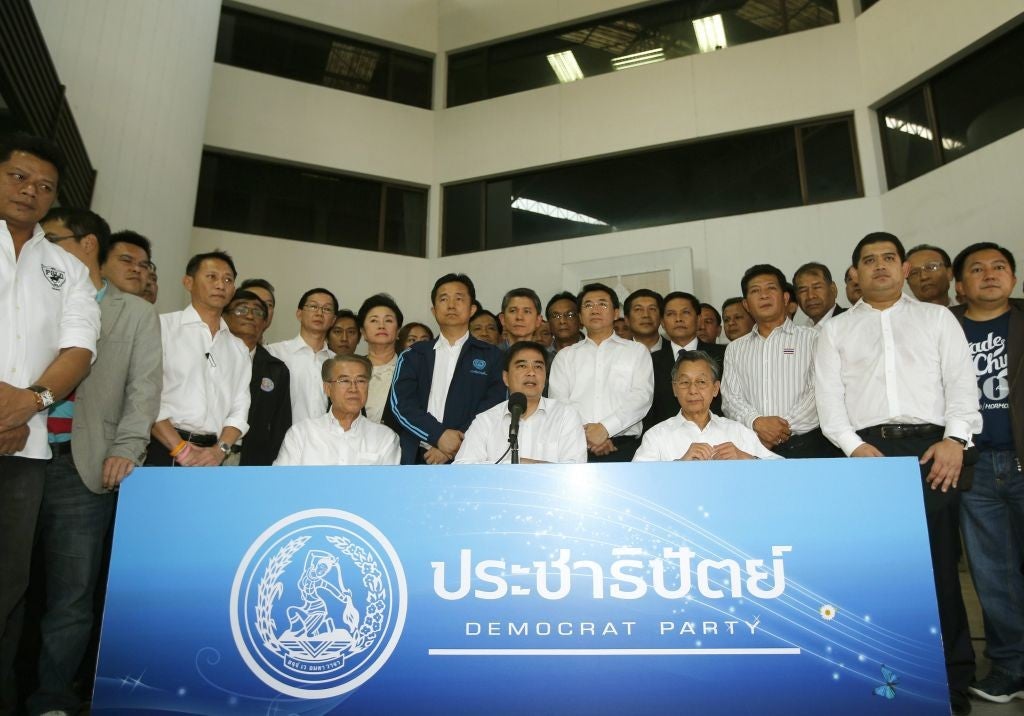Thailand opposition party will boycott February elections

Your support helps us to tell the story
From reproductive rights to climate change to Big Tech, The Independent is on the ground when the story is developing. Whether it's investigating the financials of Elon Musk's pro-Trump PAC or producing our latest documentary, 'The A Word', which shines a light on the American women fighting for reproductive rights, we know how important it is to parse out the facts from the messaging.
At such a critical moment in US history, we need reporters on the ground. Your donation allows us to keep sending journalists to speak to both sides of the story.
The Independent is trusted by Americans across the entire political spectrum. And unlike many other quality news outlets, we choose not to lock Americans out of our reporting and analysis with paywalls. We believe quality journalism should be available to everyone, paid for by those who can afford it.
Your support makes all the difference.Thailand's main opposition Democrat Party said Saturday that it would boycott February's general election, deepening the country's weekslong political crisis.
The party's leader, former Prime Minister Abhisit Vejjajiva, announced the boycott after a meeting of party executives. He said the decision was made to try to ensure that political reforms are implemented.
The party's position reflects the stand taken by street protesters demanding that Prime Minister Yingluck Shinawatra step down ahead of the elections. The demonstrators want an appointed interim government to institute reforms before any new polls are held.
The Democrats, who are closely allied with the protest movement, also led an election boycott in 2006 that helped destabilize the government and paved the way for a military coup that ousted then- Prime Minister Thaksin Shinawatra, Yingluck's older brother.
The protest movement, led by a former senior member of the Democrat Party, Suthep Thaugsuban, has said it will insist that the Feb. 2 elections not be held if Yingluck stays on as caretaker prime minister. Abhisit, however, distanced his party from that position, saying it respected the concept of elections.
Earlier Saturday, Yingluck formally proposed a plan for making political reforms after the election.
Thailand has been wracked by sometimes violent political conflict since the coup that toppled billionaire Thaksin, who was accused of corruption and abuse of power.
The protesters say Thai politics are hopelessly corrupt under Thaksin's continuing influence, and that he buys his electoral support from the country's urban and rural poor. They accuse Yingluck of being Thaksin's puppet, and believe that traditional one-man, one-vote democracy doesn't work because the poor are not educated enough to choose responsible leaders.
Thaksin's supporters say he is disliked by Bangkok's elite because he has shifted power away from the traditional ruling class.
Join our commenting forum
Join thought-provoking conversations, follow other Independent readers and see their replies
Comments